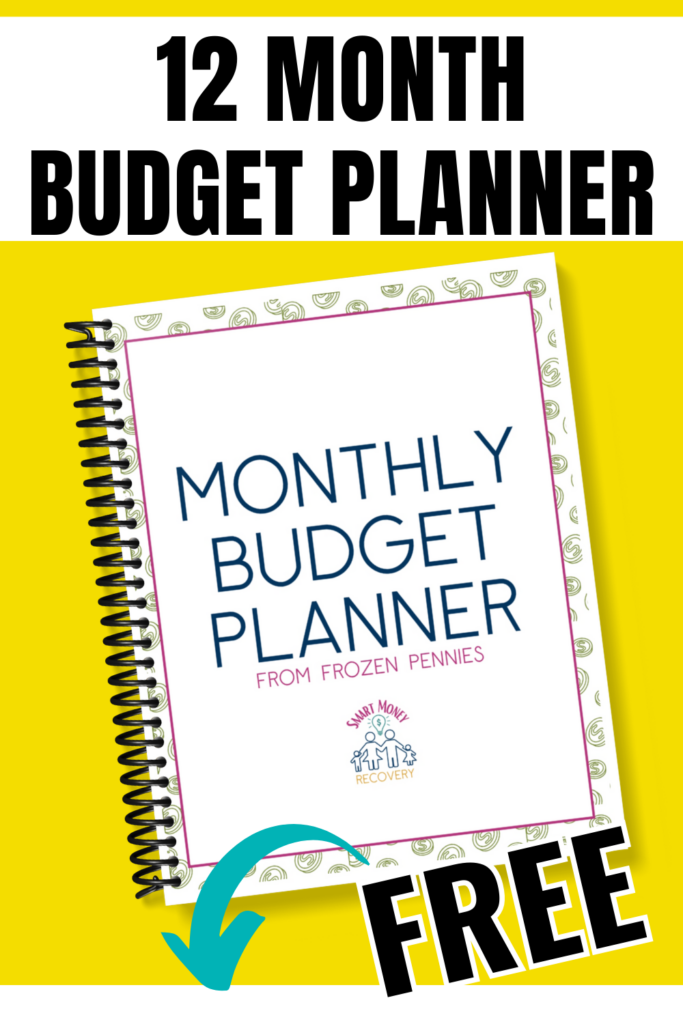The 40s is the age of wisdom (or so they say). You’ve seen a lot (almost half of your life has passed already). But do you budget your money in your 40s differently?
Yes, you do.
You might’ve gone through success, failure, and achievements all at this point. It can be a relaxed period for many strugglers and a good time to focus on your future finances.

How To Budget Your Money In Your 40s
The budgeting system you used in your 20s and 30s can differ from what you need in your 40s. You could’ve been a bit carefree in the past or maybe saved some money when you were single.
But most people have a family by their 40s, and a family budget differs significantly from an individual’s budget.
When you reach middle age, you can determine which financial goals you’ve met and need to be modified if you assess your finances and budget.
Here are some practical tips for budgeting your money in your 40s:

Think of Retirement
Having a retirement plan is always a good idea. Is it too late to save for retirement at 40? No, it’s never too late.
Change your spending habits now. Live like you already retired and are on a fixed income. Pretend the nest egg isn’t even there, and your annual salary is a fraction of what it is.
Start planning for retirement as early as possible. You could have accumulated more wealth by starting earlier, but you can do it whenever you feel like you need to do it.
If you haven’t started saving, speak to a financial planner about your options. If you’re contributing the minimum retirement savings, it’s an excellent time to increase your contributions without much risk.

Cut Expenses
Cutting expenses could be the golden rule to creating wealth at any age. Try to cut all the unnecessary expenses and save that extra money for your retirement fund.
Reducing electricity use, cooking your meals, and mowing your lawn can help you save extra cash to add to your retirement savings.
Consider buying less expensive food in the grocery store and cooking cheaper meals.
Create A Budget
Having a budget in place is a necessity. If you don’t realize where your money goes, you need to make a budget for each category. For example, you can have separate categories set for wants and needs.
Your grocery and utility bills can go to the needs category, which can be sub-categorized further. And you would need to have a few more types for entertainment, eating out, hobbies, spa, and beauty or personal care expenses.
You can use a cash envelope budgeting system to track where your money is going. A cash envelope system will allow you to find extra money and see where the cash flow might leak.
Consider an Emergency Fund
Our health might be a concern in our 40s. Having an emergency fund is necessary. Ensuring you have a safety net is vital. Job loss is also something to prepare for. Have at least 3-to-6 months of expenses in a savings account.
Recommended: Build an Emergency Fund In Less Than 3 Months
Estate Planning, Long Term Care, and Life Insurance
Planning for the future comes up as you start the fourth decade. Estate planning, long-term care, and life insurance are things that you will encounter in the next half of your life and should have a place in your money management system.

How to build wealth in your 40s?
If you are in or close to your 40s, these financial tips for the future might be a top priority. At this point, you need to focus more on saving and investing.
Starting is the key to financial freedom. If you could be more serious about your money in your 20s and 30s, you could have created decent wealth for your future.
But if you’ve not been successful in the early years, there’s still a chance to be wealthy in your 40s.
The most crucial step toward saving for your future is starting today, even if you feel behind.
Are you worried that you won’t be able to build wealth in your 40s? Here are five tips to help you get richer.
Tips For Building Wealth In Your 40s
Start Saving Now
Save every penny that’s getting wasted. List all spending categories and look deep at where your money is going.
If you have any expenses killing your finances, you just need to remove them from your life.
Consider a Side Hustle
A side hustle can give you some extra income to pay off your consumer debt and home and double up on your investments. If you’re in good health and your primary job isn’t too taxing, it might be a great time to increase your income.
Cut Down The Expenses On Leisure And Luxuries
It feels good to have dinner at an expensive restaurant, but does it take you on a guilt trip afterward? If yes, you can live a good life without spending money on fancy restaurants.
Traveling can be relaxing, but staying in 5-star hotels isn’t mandatory to feel rejuvenated. Take budget trips that fulfill the urge to wander without making you poor after every trip.

Recommended: 175 Smart Frugal Living Tips
Unsubscribe To The Unnecessary Subscriptions
Have you ever opened that fashion magazine delivered by mail every month?
Or that e-magazine of personal finance lessons kept on auto-renewal mode and stole your money without realizing it?
You can cancel them if you haven’t read them for months. They aren’t your need when you haven’t looked at them for months.
You will magically save a lot of money just by canceling these unnecessary subscriptions and will be able to save towards wealth for the future.

Avoid Eating Out and Eat Freshly Cooked Food At Home
Homemade is happiness. Be it your regular meal or a dessert you crave, homemade creates some extra joy. Eating out can be a good break occasionally, but it costs a lot more than homemade food.
If you want to save some serious money, cook your meals.
Be More Concerned About Your Health
Are you neglecting your health while running behind money? If yes, you need to slow down and pay extra attention. A healthy you can create a wealthy you.
When people neglect their health over wealth, they pay extra to the hospitals to recover the lost health. It’s always better to be more concerned about your health when you want to enjoy a wealthy life.
Cut Down On Packaged Food
It’s convenient to pick up those packets of chips, candies, and processed food from the supermarket shelves. But they are conveniently harmful to your pocket and your health too.
Chips and candies can temporarily satisfy you but make you poor and unhealthy in the long run. They are pricey enough to steal your money. And are unhealthy enough to make you sick.
The same goes for pre-made meals. Cooking from scratch costs less.

Pay Off Your House
Get rid of those mortgage payments as quickly as possible. No home payments will give you more financial stability and enough money from your investments and social security to survive.
Invest Your Money To Maximize Your Savings Goals
It’s not enough to save money. You need to maximize the same for a better future. Consider long-term goals.
You are investing your savings in stock markets, mutual funds, and a Roth IRA. These investment accounts are the best way to have income during retirement and can increase your wealth by taking a medium to a high level of risk.
Investment in the stock market can hold some amount of risk, but it’s where you can multiply your wealth.
Don’t forget about the 401K. Maximize your contribution and bonus points if you have an employer match!
Do your research before investing in the stock market. You may have to hire a financial advisor who can navigate you through the good and bad of investing.
Pay Off Debt
While looking at the big picture, the less debt you have, the more you can increase your retirement contributions.
These may be your highest-earning years, so there’s no better time to pay off your credit card debt (and student loans hanging around for 20 years) and decrease any other high-interest debt or significant monthly expenses.
Being debt-free is an important step when budgeting your money in your 40s. If you can use credit cards without a balance, keep them. Otherwise, your financial situation will worsen if you continue using them frivolously.
Consider Real Estate Investing.
Purchasing a rental property can increase your monthly income as you look forward to your financial goal. Collecting a monthly income will open the door to many investing and saving opportunities. Investment properties will help you increase your net worth and give you more monthly income during your golden years.

How much money should you have saved for retirement in your 40s?
Turning 40 marks a significant point in life, and you can also feel stressed if you’re financially behind your peers. You may be thinking more about your retirement plans.
How much money should you have saved by your 40s? Well, every individual is different. Your earnings and expenses can be different from your peers.
Even if you haven’t been serious about your finances in the past, you can still save, invest, and build your financial future now.
Using the general guideline that you should have saved three times your salary by age 40, you should have saved about $175,000 if you earn an average wage.
Even if you’ve not reached that goal yet, you can work more to get there.
Budgeting Has Changed By The Time You’re In Your 40s
At this point, most of us become more conscious of our health. Everyone wants to get fit once we enter our 40s.
But, it would be best if you were financially and physically fit. You may have built the desired wealth by this time, but budgeting is still a key to financial success in your 40s, 50s, 60s, etc.
Ideally, you should have a decent amount saved for your future. You’ve worked hard for the past few decades.
And you should have gotten a fair idea about your savings, expenses, and budgeting plans. But, if you aren’t in the habit of saving and budgeting your money, you can still do it in your 40s.
How do you budget your money in your 40s? Well, it won’t be that tough if you’ve been budgeting all along.
Even if you start with budgeting, budgeting your monthly expenses will not be too difficult.

Final Thoughts On How to Budget Your Money in Your 40s
Life’s challenges and opportunities are different every decade. However, the 40s are of particular importance since you are approaching retirement.
In addition to servicing a home loan, you may need money to pay for your children’s schooling.
To retire early, you must budget with some of the best budgeting systems.
Increasing savings and cutting down expenses is the key to success in your financial life, which will help you plan your retirement well in advance.
Let your money work for you in your 40s than working for money throughout your life.

 12 Tips to Live Below Your Means: Stop Overspending
12 Tips to Live Below Your Means: Stop Overspending